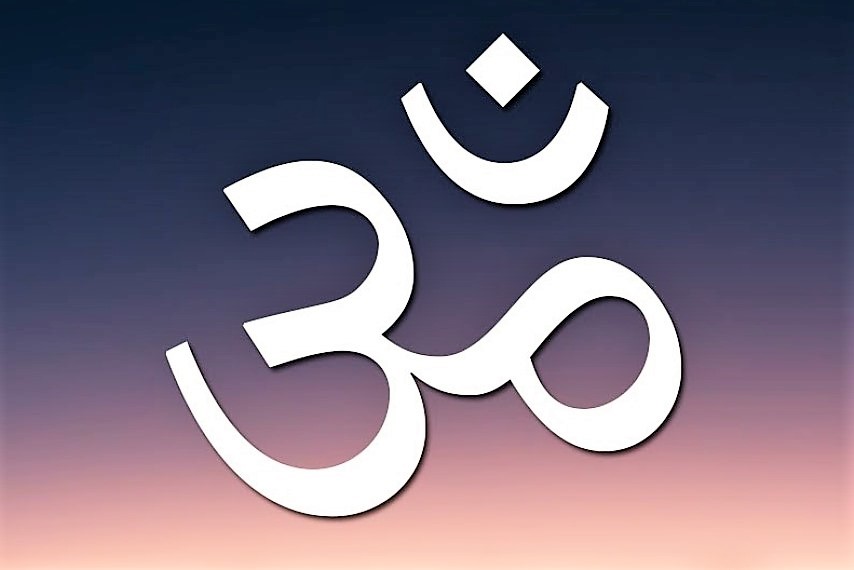Om is the Hindu symbol of the Absolute

The goal that all the Vedas declare, to which all austerities point and that men desire when they lead the life of continence ... is Om. This syllable Om is really Brahman. Anyone who knows this syllable gets everything he wants. This is the best support; this is the maximum support. Anyone who knows this support is worshiped in the world of Brahma.
- Katha Upanishad I
The syllable "Om" or "Aum" is of fundamental importance in Hinduism. This symbol is a sacred syllable representing Brahman, the impersonal Absolute of Hinduism: omnipotent, omnipresent and the source of all manifest existence. Brahman, by itself, is incomprehensible, so some sort of symbol is essential to help us conceptualize the unknowable. Om, therefore, represents both the unmanifest (nirguna) and manifest (saguna) aspects of God. This is why it is called pranava, which means that it pervades life and passes through our prana or breath.
Om in daily Hindu life
Although Om symbolizes the deeper concepts of Hindu belief, it is in daily use by most followers of Hinduism. Many Hindus start their day or any job or journey by saying Om. The sacred symbol is often found at the head of letters, at the beginning of exam papers, and so on. Many Hindus, as an expression of spiritual perfection, wear the sign of Om as a pendant. This symbol is enshrined in every Hindu temple and in one form or another in family shrines.
It is interesting to note that a new born baby is inaugurated in the world with this holy sign. After birth, the baby is ritually purified and the sacred syllable Om is written on the tongue with honey. Hence, it is from the moment of birth that the syllable Om is introduced into the life of a Hindu, and always remains with him as a symbol of pity for the rest of his life. Om is also a popular symbol used in body art and contemporary tattoos.
The eternal syllable
According to the Mandukya Upanishad:
Om is the only eternal syllable of which only the development exists. The past, present and future are all included in this one sound and everything that exists beyond the three forms of time is implicit in it.
Om's music
For Hindus, Om is not exactly a word, but rather an intonation. Like music, it transcends the barriers of age, race, culture, and even species. It is made up of three Sanskrit letters, aa, au and ma which, when combined together, produce the sound "Aum" or "Om". For Hindus, it is believed to be the basic sound of the world and to contain all the other sounds within it. It is a mantra or prayer in itself and, when repeated with the correct intonation, can resonate throughout the body so that the sound enters the center of one's being, the atman or soul.
There is harmony, peace and happiness in this simple yet deeply philosophical sound. According to the Bhagavad Gita, by vibrating the sacred syllable Om, the supreme combination of letters, while contemplating the Supreme Personality of Divinity and abandoning one's body, a believer will certainly reach the highest state of "stateless" eternity.
The power of Om is paradoxical and twofold. On the one hand, it projects the mind beyond the immediate towards an abstract and inexpressible metaphysical state. On the other hand, however, it takes the absolute to a more tangible and complete level. It includes all the potentials and possibilities; it is all that was, is or still has to be.
Om in practice
When we chant Om during meditation, we create a vibration within ourselves that tunes in tune with the cosmic vibration and we begin to think universally. The momentary silence between each song becomes palpable. The mind moves between the opposites of sound and silence until the sound ceases to exist. In the silence that follows, even the thought of Om is extinguished, and there is no longer even the presence of the thought to interrupt pure awareness.
This is the trance state, in which the mind and intellect are transcended as the individual merges with the Infinite Self in a pious moment of absolute realization. It is a time when petty worldly affairs are lost in the desire and experience of the universal. Such is the immeasurable power of Om.